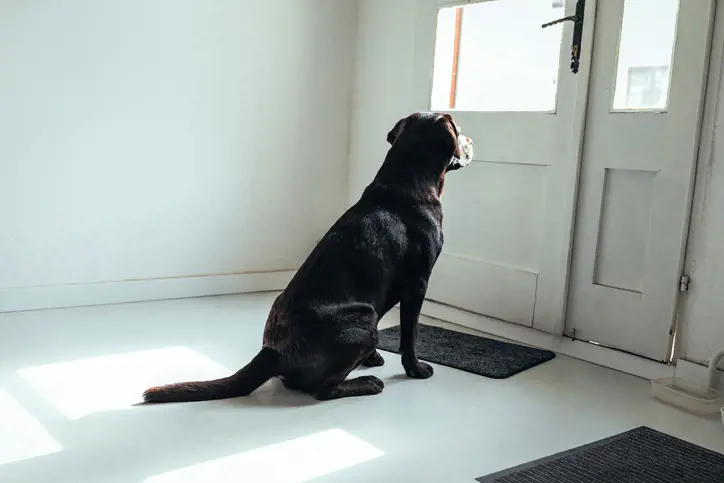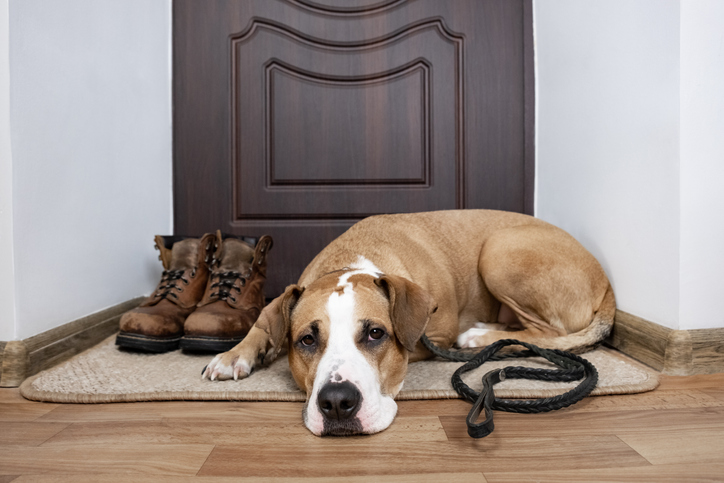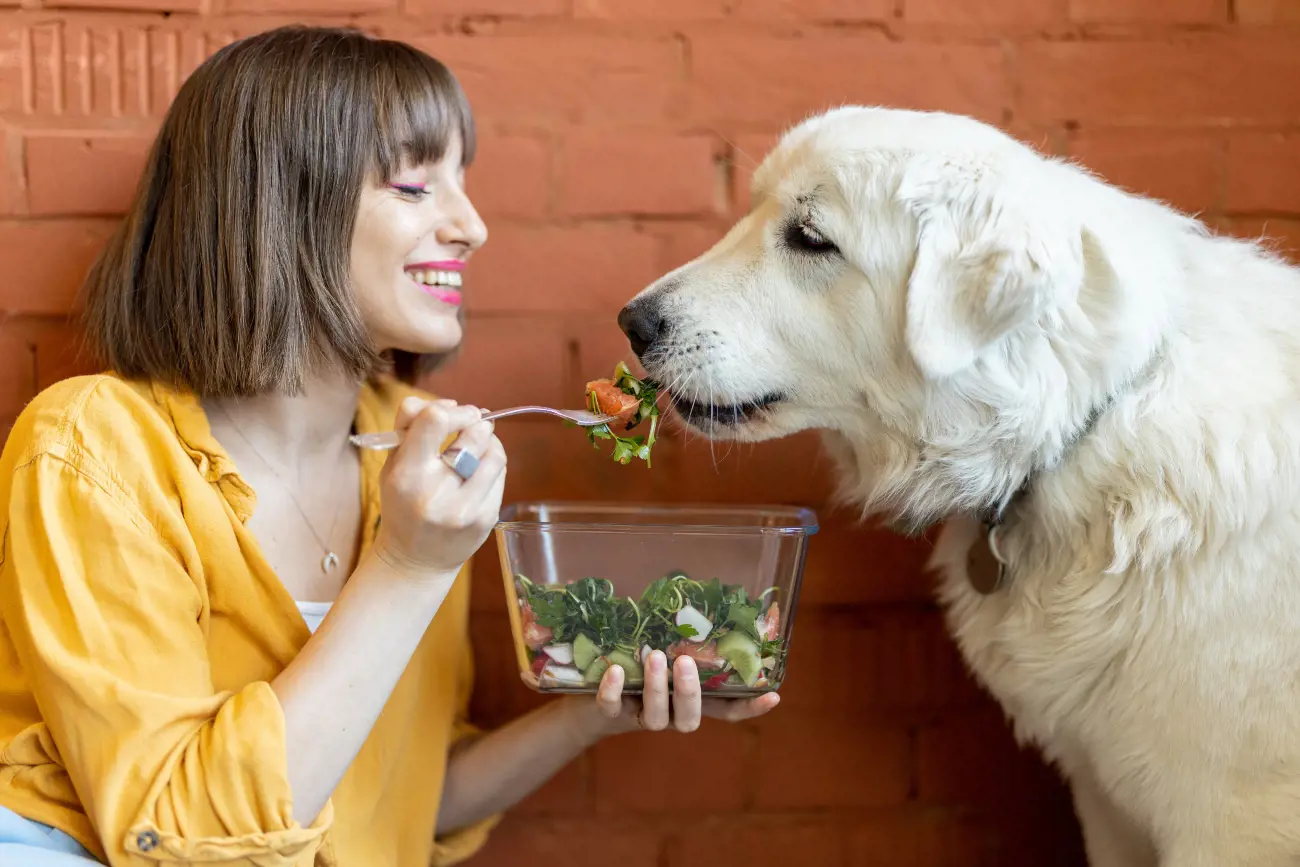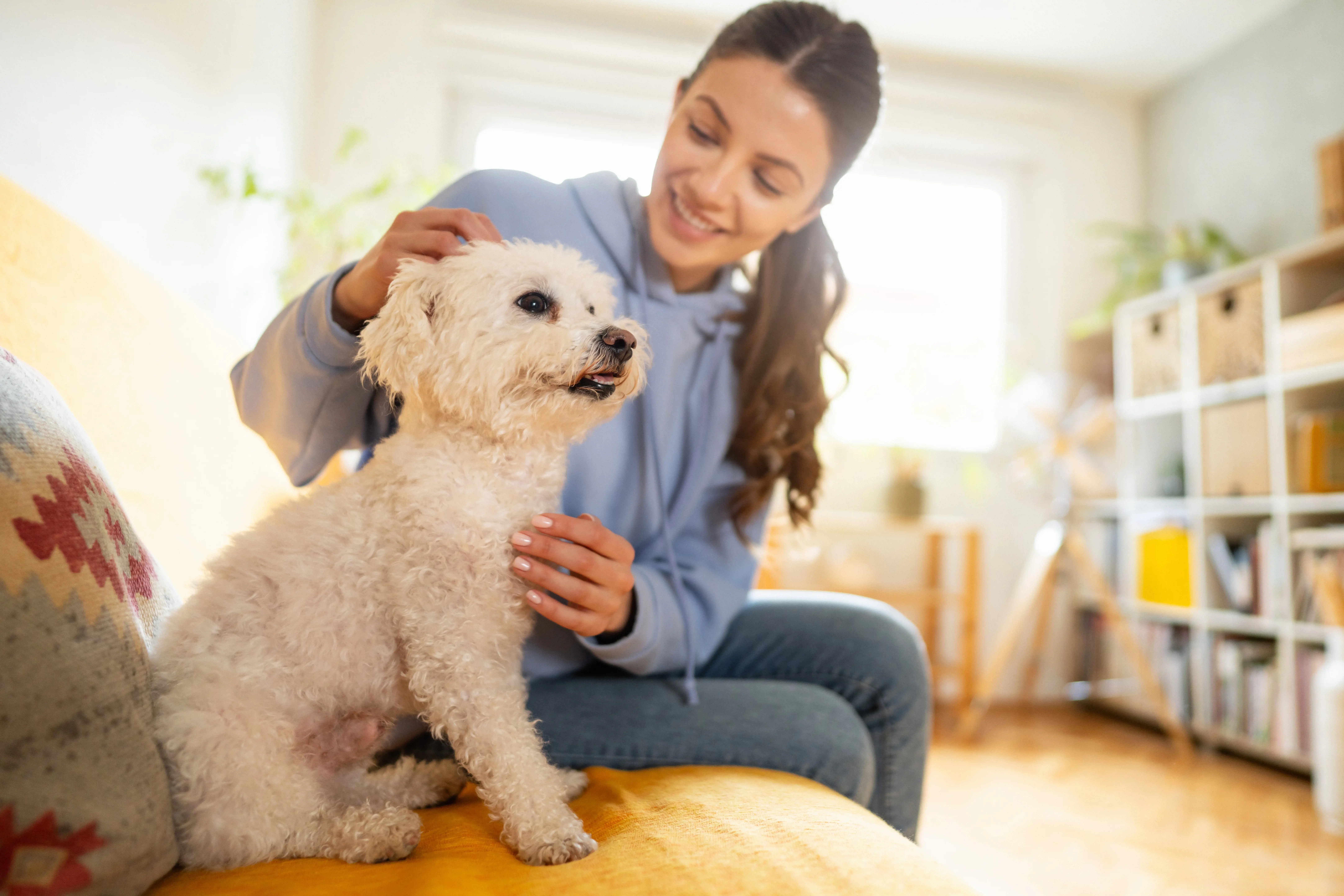Best dog breeds to buy if you work all day
26th January, 2021

There’s nothing better than returning from a hard day at work, only to be greeted by your four-legged friend. That wagging tail.
That unconditional love. There’s nothing better! That said, some dog breeds do much better than others when it comes to being left alone while you’re toiling away at the office all day.
Choosing the right dog breed is just as essential as choosing the right spscialist pet insurance. Here at Purely Pets, we can help you find the perfect cover for your pooch.
How long can a dog be left alone?
Unfortunately, while dogs see us as members of their pack who they want to be with 24/7, this isn’t always possible. Here are some general guidelines on the length of time you can leave a dog alone.
Puppies – Maximum 2 hours a day
If you’re looking to get one of these gorgeous bundles then you’ll need to put a lot of work into their first 18 months. After all, they aren’t yet used to being alone, they’ll need the toilet more often and they can soon develop separation anxiety if you’re away for too long.
Adult dogs (over 18 months) – Between four and six hours a day
A lot will depend on the dog’s breed, temperament and whether they got used to being alone when they were a puppy. Hopefully, you or their previous owner put in the time and effort to make them feel secure when separated from you. Many dogs of this age will sleep for much of the time when you are not home.
Elderly dogs – Between two and six hours a day
Again, this depends very much on the dog. If they have health issues or they need to toilet more you’ll need to be on hand to check them more regularly, or have a friend or family member going in.
If you’re thinking of adopting a dog, then be aware that many shelters and charities do not recommend adoption if the owner works full-time and the dog will be left alone all day. For example, Dogs Trust recommends that no dog should be left alone for more than 4 hours at a time.

What are the risks of leaving a dog alone?
Clearly there are times when our pampered pooches need to be left home alone. However, if this happens too often, and for too long, then behavioural problems can start to develop such as:
-
Scratching and biting
-
Chewing on furniture and clothes
-
Excessive eating
-
Escaping and getting lost
-
Howling and barking
While your chewed possessions can be replaced and annoyed neighbours can be calmed, if your dog escapes and gets lost there is much more at stake! If you have pet insurance through Purely Pets then we can help in this event. Just call our helpful team for further details.
Which dog breeds are low maintenance?
While all dogs need exercise and attention, some need more than others. The following breeds are known for their independent and low maintenance demands.
Chihuahua
– Owing to their diminutive size and their lower exercise needs chihuahuas can make a good dog for those who work. Just keep an eye on their attitude or they could boss you around. If you have space in your life for two of these tiny delights then they often work well as a pair.
French Bulldog
– These cheerful and compact companions are a perennial favourite for busy owners and families. While they do have a good deal of energy, this doesn’t last for long so only moderate daily exercise is needed. Just make sure to give them plenty of cuddles on your return home.
Greyhound
– Despite their speedy reputation these larger dogs enjoy nothing more than cuddling up on the sofa for a nap. However, when you get home you will still need to take them out for a walk but this is great bonding time for you both and you’ll be a happier couple all round.
Bull-mastiff
– They might look big and tough but the Bull-mastiff is a surprisingly chilled housemate. They don’t need a huge amount of attention or exercise and will happily lounge around for most of the day. Their imposing size and appearance is usually enough to ward off any intruders while you’re out.
Training your dog to be left alone
Teaching your dog that alone time is nothing to worry about is an important part of their training. Follow the simple steps below to help your dog cope.
-
Start off by asking your dog to go to their bed. Wait with them and give a reward if they stay there quietly.
-
Ask your dog to stay in their bed, while you move away. Return and reward.
-
Each time, try to move further away and for longer periods of time. If your dog reacts or moves, then don't reward them. However, never punish them. Just return to the previous stage.
-
Start leaving the room and then returning.
-
Go out the room and shut the door. Stay outside the room for longer periods.
-
Start varying the length of time you are out.
-
When your dog is happy to be left for up to an hour there should be no problems leaving them for longer periods.
Every dog is different and will react to the training in different ways. Take your time and stop if it becomes distressing for your pup. There’s always another day to try.
If your dog has already developed separation anxiety, then you might need to do more to help them deal with being alone. The RSPCA has some helpful advice on treatment on their website.
Also, pet insurance policyholders can access our Purely Pets 24-Hour Vet Helpline for guidance from our trained veterinary professionals.
Pet insurance cover from Purely Pets
Whether you’re at home or away, accidents can happen to our faithful friends. Our award-winning insurance will help cover any costs of treatment so you can focus on them getting better. Make sure to check out which dog breeds have the best sense of smell.
Make sure you have the protection you need by taking out an insurance policy for pets through the dedicated team at Purely Pets.
Get a quote today.
Policy benefits, features and discounts offered may very between insurance schemes or cover selected and are subject to underwriting criteria. Information contained within this article is accurate at the time of publishing but may be subject to change.
Helpful Pages
Recent Posts
Pet Insurance Quote
- 98% claims paid *
- Claims paid directly to vets
- 24/7 vet video consultations
- Interest free monthly payments




